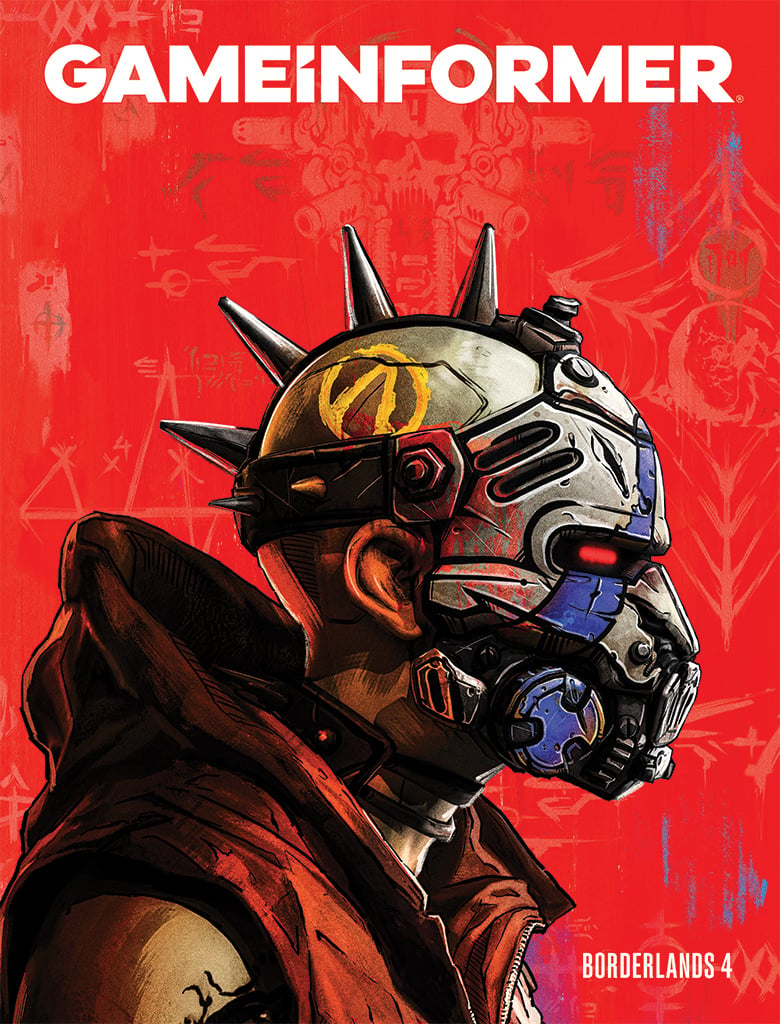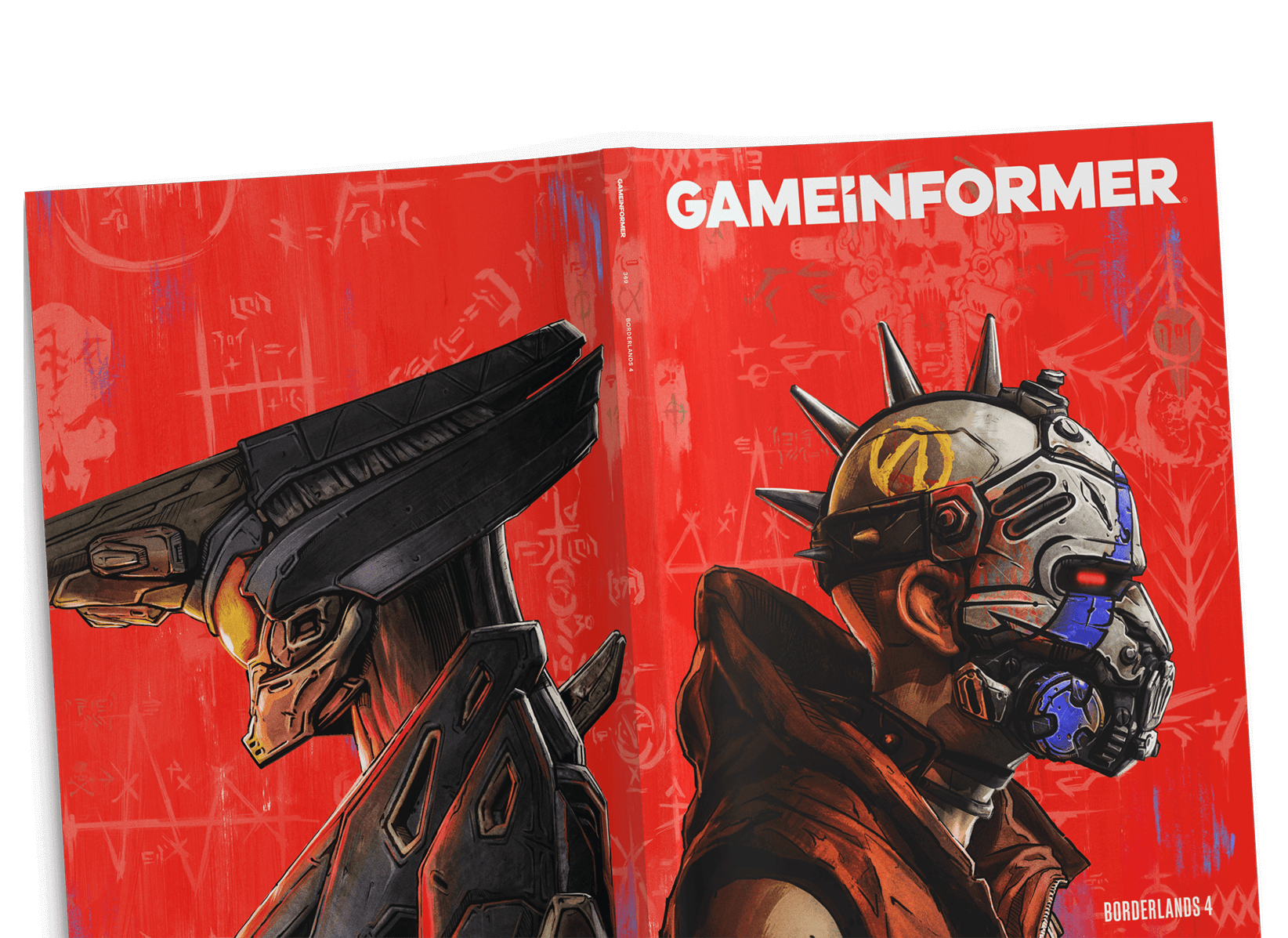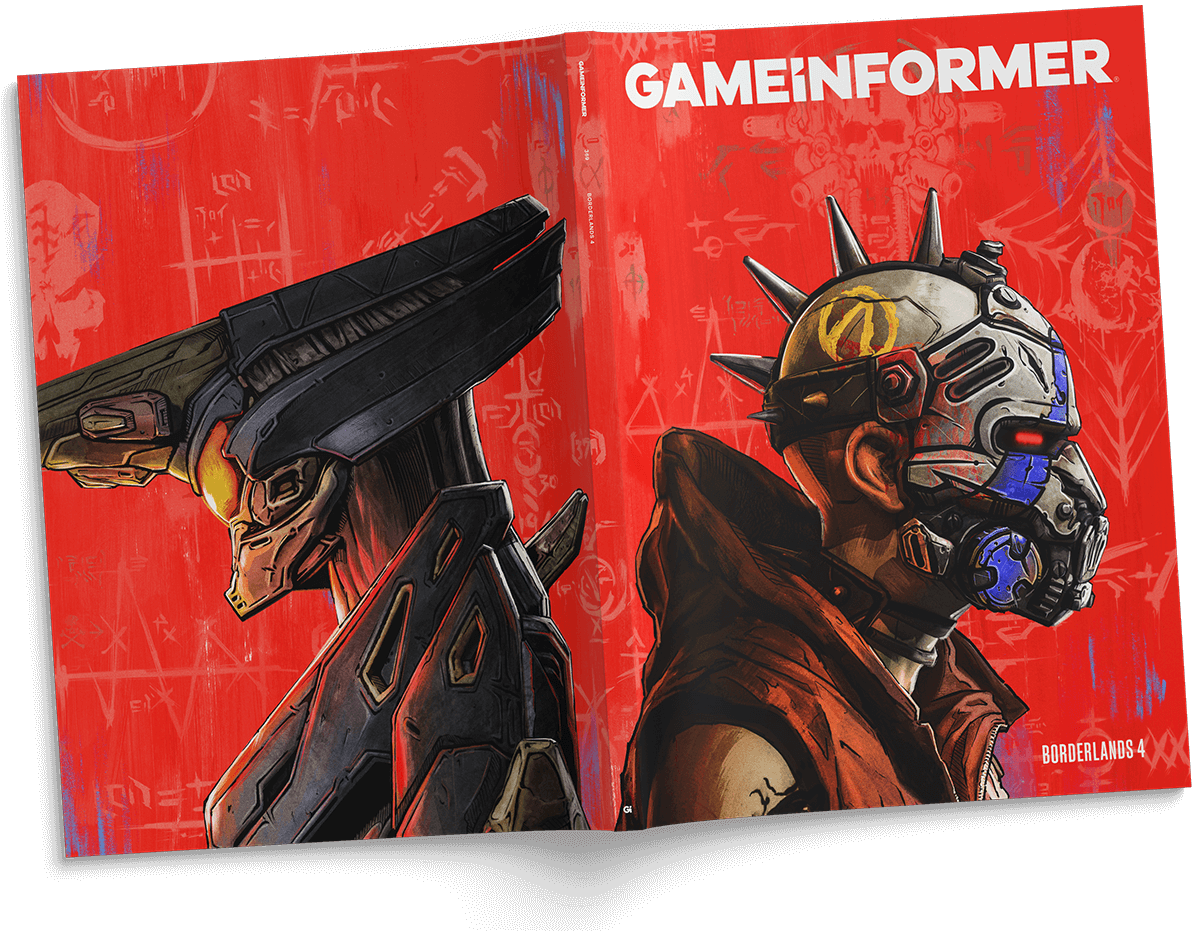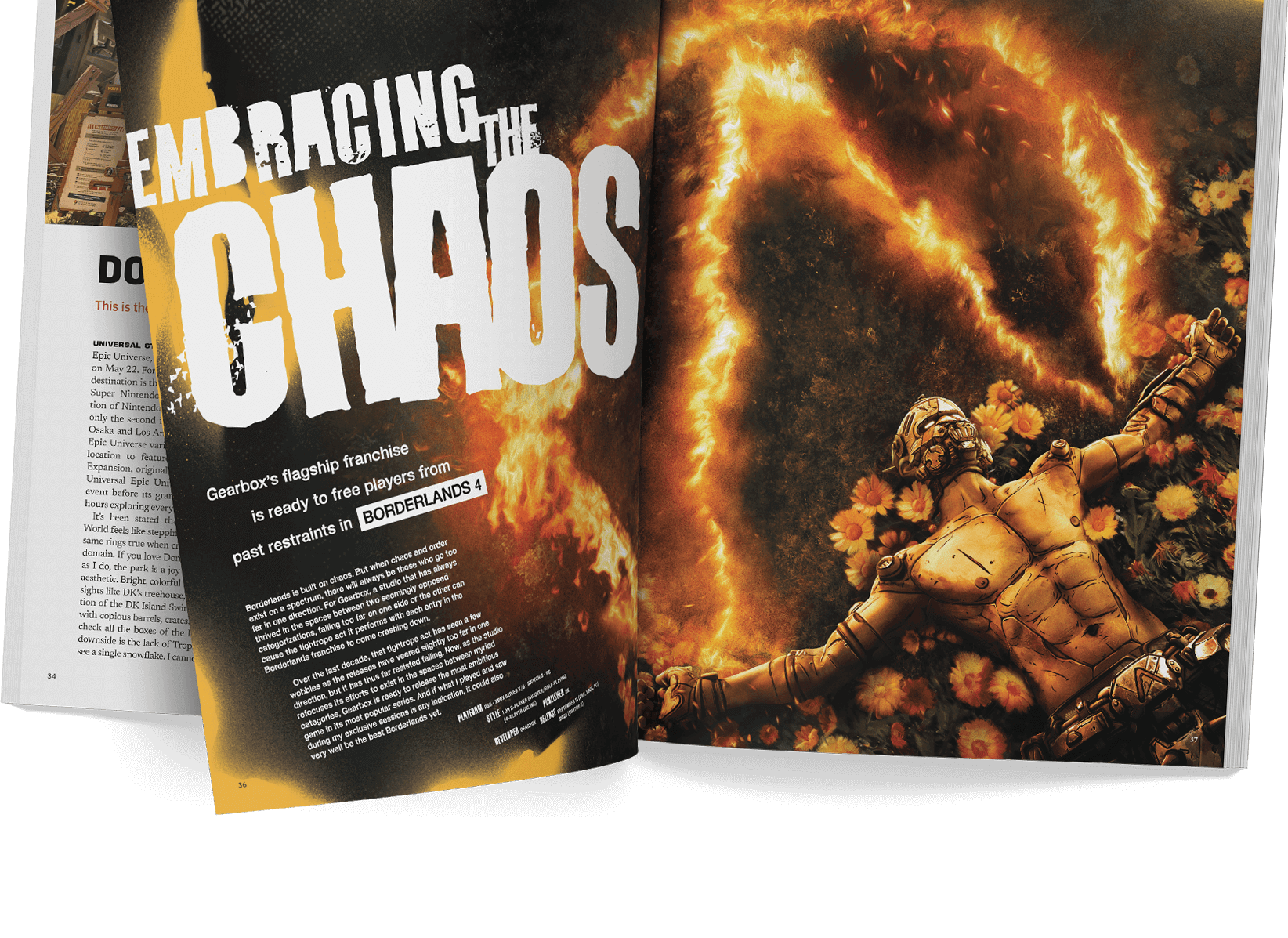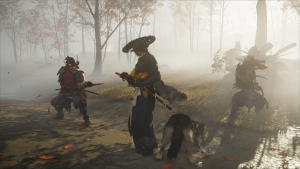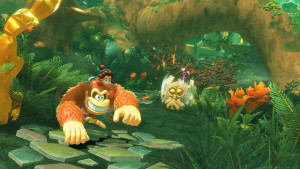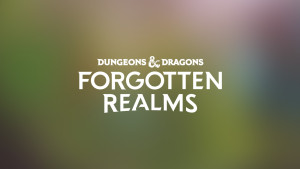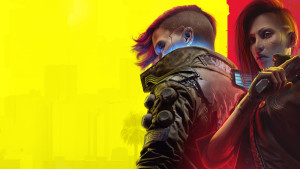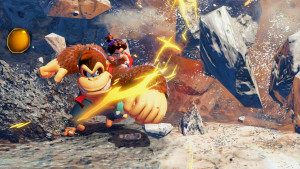Subscribe now to get the Vampire: The Masquerade – Bloodlines 2 issue and a D&D poster pack-in!
Activision’s CEO Talks Call Of Duty, Crash, PlayerUnknown’s Battlegrounds
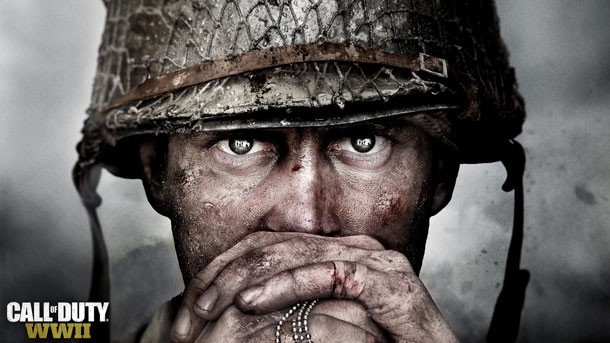
We weren't the only people visiting Sledgehammer Games last month. While we were at the studio to get a look at Call of Duty: WWII for our cover story, Activision CEO Eric Hirshberg was there to check on the game's progress. He was gracious enough to set aside some time to talk with us about Call of Duty, Crash Bandicoot, and even PlayerUnknown's Battlegrounds in a lengthy conversation.
Game Informer – We just wanted to ask the obvious question: Why World War II again? How long has it been in the company’s mind? What was the decision like to choose which studio to kind of tackle this throwback?
Eric Hirshberg – Great question. I wish there was a more scientific answer; it really is a little bit of instinct, and a lot of conversation. I think there are several elements. First of all, there was a time not too long ago when everybody in the Call of Duty community was fatigued with modern and was asking for innovation and asking for new experiences, and that’s what led us to start experimenting with taking the franchise into the future in the first place. I think with the benefit of hindsight we can all agree we might have had one more future game than we needed [laughs]. Not to make any comment on the quality of the game from last year, but I think that while there were a lot of innovations and a lot of fun new things that players got to do, it was one future game too many.
Two-and-a-half years before that, we started both feeling ourselves as players, and also starting to maybe hear that desire for a return to our roots. And again, when these games take three years to make, it’s a bit of a fool’s errand to try to perfectly time the changing tides of opinion with the slate. So that’s not the only thing that we listen to; we also listen to the passions of our teams, and I’m a huge believer that you don’t get great games that teams aren’t passionate about making. So no matter how much I think the time is right for one thing or another, or how decisive I am in that opinion or discussion, if there’s a team who doesn’t have the passion or a bunch of great ideas for that game or that environment, that’s another road to failure that you have to make sure you stay off of. In this case, the stars really aligned.
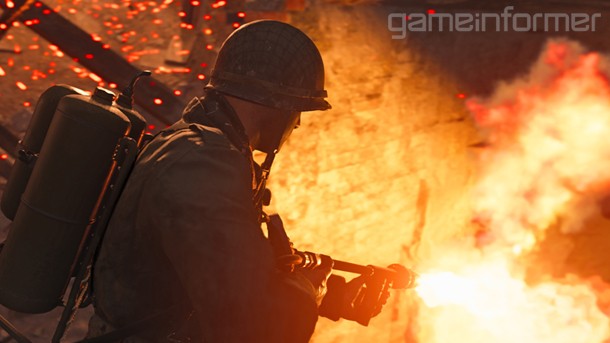
I think the original desire at Sledgehammer was to make Advanced Warfare 2 for very understandable reasons, because what developer doesn’t want a sequel and to start a long-standing sub-franchise that they sort of have unique ownership over? But, as soon as we opened the conversation about “Hey guys what do you think about WWII? There’s a small group of us who thought it might be the right time to take us back to our roots.” And, you asked a question about why this team, all of us wanted to play a World War II game made by Sledge, meaning they have – you know I think each of our lead studios, you know, very compatible in many ways, but each brings a certain flavor to the franchise, which I think has been a part of its success is that we have these slightly different riffs on the theme, and I think that Sledgehammer’s unique contributions are fitting with their name. It’s impact, cinematic scale, that sense of big Call of Duty moments – I think they do those as well, or better, than anybody.
So that, paired with the big war, the big epic scale of the greatest war ever fought, the grandest scale war ever fought, just felt natural, so it didn’t take long for them to get really excited about it, for their team to get excited about it, and they were off and running. So it was a conversation really early in the process and it went well, and here we are.
Do you feel like the tides could ever fully rotate again and you go back to Advanced Warfare?
Oh god [laughs]. Just uh, proba– I don’t know [laughs]. I don’t wanna take a decisive position. It’s one of those things that, you know, if you stay on the train long enough, the scenery keeps changing.
Do you see this as just a one-off to satisfy the old-school fans, or do you see this as future direction for all of Call of Duty?
Well, you know I can’t reveal things on the slate that are several years off, but no I don’t necessarily see it as a one-off; I think that World War II and historical settings more broadly are very rich territory, and I think there’s every possibility that that could become an area that we explore more than once.
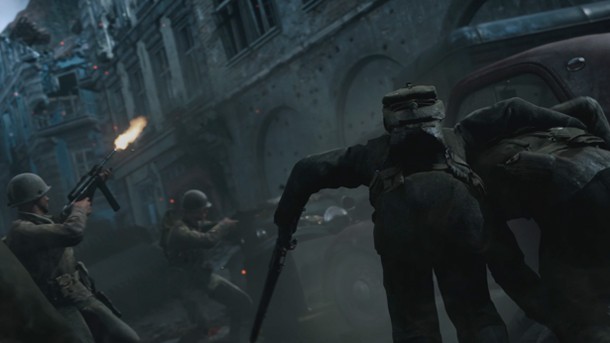
With the shift toward the social space and dynamic events like that, has there ever been any consideration toward moving Call of Duty toward a game-as-service instead of an annualized franchise?
Yeah, that’s another great question. First of all, I know this sounds like a little bit of a hedge, but I think it already is in many ways, and in many ways was one of the first. I mean, there’s more than one way to create a community that sticks around for many years and continues to play together. Call of Duty has a very high percentage of players from year to year who come back and purchase the new game and keep playing together and move their social network to the new game. Now, I understand that the properties it doesn’t have are that sort of continuous world with expansions and a continuous string of accomplishments that carry over from game to game, so it doesn’t have those things that I think classically people associate with a persistent platform, but it does have a very stable community that has been very committed to the franchise and very “sticky” for a very large number of people, which is, I think, one of the main benefits of a game as a service.
I think that we have tried to find the right solution for each franchise individually, and Call of Duty has really benefitted from that annual innovation moment, that annual reengagement moment where a lot of people, who maybe played for a couple months and had a great experience but moved on to other things, come back and check out the new game, and there’s advantages and disadvantages to both. We’ve experienced the other side of the coin within our own slate; Destiny has advantages to how sticky that game was for the core players and how long play sessions were and how long they stuck around to play, and then also we see that sometimes it’s harder to bring a new player into an environment where they feel like “Oh, I’m three years behind my buddy who’s been playing persistently for that length of time.” So I think there are gives and takes on both sides.
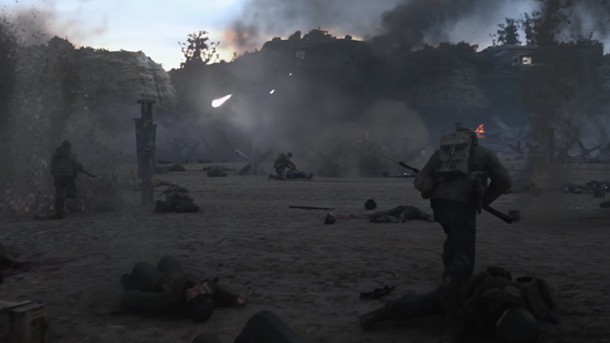
I think on Call of Duty, we actually have a system that works with the annual release, but I think there’s more we can do to unify the player no matter where they’re playing. You’re seeing us now starting to have some success with releasing content wherever players are. You just saw us release a big zombie pack in the Black Ops III community, and that game is two-and-a-half years past its launch, but it’s super “sticky” and there’s still a passionate group of players playing it, so we want to be wherever players are and we want to provide great content wherever players are, so we’re starting to have some success with that. I think there’s more we can do to unify the player experience if there are going to be people who move around from game to game. There are players who buy the new game, try the new game, maybe have a satisfying experience with the new game, but still decide “I’m going to go back to the previous game because more of my friends still like that, so I want to play MP with them,” or “I want to get the clan back together” or whatever.
There are people who shift into the new game and never look back. I think that our goal is to not necessarily completely reinvent the things that are working, but to make the experience for “I’m a Call of Duty player, I like multiple titles within the franchise” – make that experience better, create more benefits for being a loyal player, those are things that we’re working on and trying to improve.
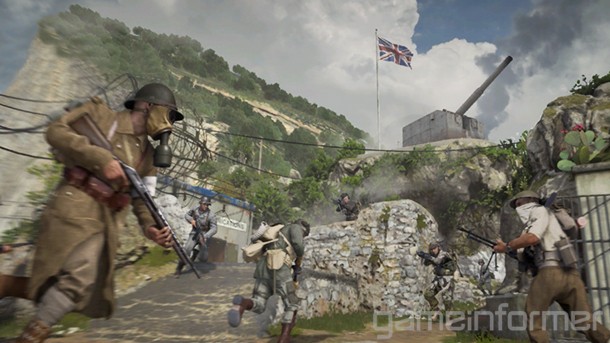
One of the interesting things about this game is the headquarters. I think moving forward as a player it might be difficult to go just a traditional lobby. Is this something you see as something for the franchise possibly moving forward, something similar to this?
It really depends on the response. It’s certainly something we feel the same way about; you look at it and say, “That could be a new franchise staple.” Certainly, if that becomes a daily habit, if that becomes a behavior that really catches on and the players really love, there’s obvious benefits. It’s much more satisfyingly social to be interacting with people in a 3-D environment than just over a voice and text environment. There’s a lot of fun mini-games, there’s a lot of fun engagement drivers, there’s a lot of rewards for coming back every day, so I think that it’s a very thoughtful and well thought-out design. And then you’ll see what happens when it gets in the hands of players, you know? It’s all theory until then.
So it certainly is one of those that has the potential to transform the way the community interacts with one another. And I think it’s the right… A lot of the innovation debates are making sure that we’re aiming at the right bull’s eyes. Whether or not it succeeds or fails, it was the right problem to take a shot at solving because Call of Duty is a game that tons of people play together, and yet I would argue it’s not a tremendously social experience. Most of the time that you’re together, you’re actually playing, your hair’s on fire, and you’re moving a million miles an hour and your adrenaline’s pumping and so there’s not that sense of ability to really interact in that way we’ve come to be used to in other games. And in other platforms. In social media, and the whole world has become more comfortable socially through digital mediums. And I think it’s an area where Call of Duty can improve.
So I love the shot that we’re taking and I’m really interested to see how it goes once it gets in the hands of our players. There’s every chance it’ll catch on and every chance they’ll be like, “The text thing was faster!” [laughs] We’ll see.
From our vantage point, I think that the outside world kind of sees it like, “Oh, it’s Call of Duty’s take on Destiny’s tower.” From your vantage point, was it that idea of, “Oh this is working well, let’s cross-pollinate this with the other studio’s idea?”
Well I certainly understand the comparison. I do think that it didn’t come from that observation, it did come from the conversation we were just having. Which means it came from the idea that this is a super social, sticky game where we don’t give people a place to interact. And the World War II setting felt like a really natural setting for a camp, a headquarters, an environment that we’ve seen in tons of movies and is correct historically where there was that sort of staging area that was vast. It came out of that conversation. But, of course we’ve seen success in Destiny, I’d argue in Destiny it’s so integral to the game design. It’s where you do everything. It’s sort of the first and last experience you have.
So this is more of a retro-engineering into a game that already has a pretty well-established path and muscle memory for players. So I think in a weird way it’s harder to figure out if we can inject that into it. And the question is whether or not, like I said, different communities, they’re different. You gotta find the right solution for each one. You can’t just take one that works in one and apply it to another necessarily. Like I said, COD players might sort of be like, “I don’t want that. I want a match made faster.” [laughs] But, like I said I think that a lot of the creative process should be that the execution is secondary to making sure we’re answering the right questions. To make sure we’re aiming the arsenal at the right bullseye. And I do think it’s a great thing for us to attempt to do: to give the stickiness and the social community that has naturally sprung up around playing Call of Duty a place to breathe and live and be more interactive.
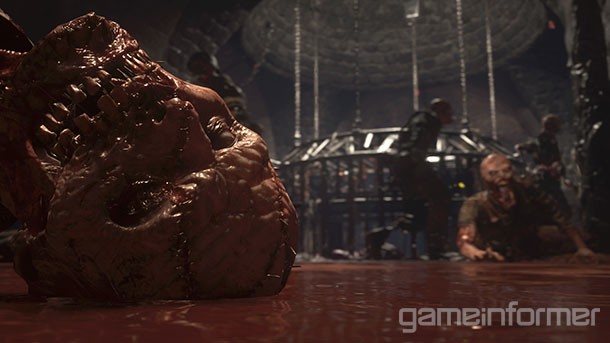
So to stroke your ego a little bit, Call of Duty’s a franchise that’s always been very successful at offering a tremendous amount of value. The campaign is always a top-notch single-player experience, you have multiplayer, and then a third mode. I’m wondering, is that something you guys are always planning on bundling that “Call of Duty experience” or do you ever consider breaking off zombies into more of a fuller experience, even though it’s very satisfying as it stands?
No, I think that the whole is greater than the sum of the parts when they’re bundled together for the following reasons. There’s a lot of crossover. It’s not like we have these three modes and then there’s just three types of players that break into three factions, and never cross over. There’s a tremendous amount of crossover between zombies and multiplayer. There’s a tremendous amount of crossover between single-player and zombies. Now, there’s variability in the next step: How successful we drive that omnivorous behavior. It’s really advantageous when we do. People who play more than one mode stick around a lot longer, we’ve noticed statistical. So that value proposition creates both a better experience for the consumer and it creates a player who sticks around longer in our community. For us, we think it’s a win-win when we get it right. I also think that it’s just a competitive advantage.
I think that Call of Duty operates at a scale where we can afford to really invest once a year in these epic releases that take three years to make and an army to produce. Not everybody has that ability, and so I think that that value proposition is a huge part of what we think is fun about that game, is awesome about the game, and our fans expect from the game. The other thing, I was talking about making the experience better for people migrating from game to game, you’re also gonna see us do more experiments in terms of trying to unify the player who moves from mode to mode and trying to make that a richer experience. So I think the headquarters is a place where no matter what type of player you are – there’s gonna be a rewards path, there’s gonna be an interaction opportunity to meet other players, like you to meet up, to team up. So I think it’s something we can definitely get better at.
Are you able to speak to a little bit detail in like how you do plan to incentivize players to keep playing entry to entry? Is it something as simple as they get an extra supply crate if you notice a save game from last year’s version, or is it something more substantial?
I don’t want to jump the gun on any reveals. It’s just something that we think about and try to drive. Like I said, we’ve had different levels of results so it’s just the quality of the different modes. But in Black Ops III for example, we saw a kind of a high watermark of people trying all three modes, we saw a high watermark of people trying who were really committed to two modes, and as a result, it was one of the stickiest games we’ve ever made. Hence, us releasing new content two and a half years later.
If you’re keeping your eye on the industry, this year in particular, it seems like it’s tough to avoid PlayerUnknown’s Battlegrounds –
Yes, great game!
I’m just curious, do you think that battle royale genre can ever blend with the Call of Duty series in a satisfying way?
Maybe. It’s a fun way to play! I don’t know, I think Call of Duty has both invented new ways to play and been inspired by, and put its own take on things we’ve seen elsewhere, and put our own creative stamp on it – and we’ve done both successfully. That’s certainly one that I think has caught everybody’s imagination, not just ours. And I love the way no one had heard of it a month ago, or three months ago, and now we’ve all heard of it, we’re all playing it, and there’s no building wraps with the Battlegrounds logo on it, there’s no 60 second commercials on television, and yet we all know about it. This is sort of like, our connected visual world at its best – where something just based on quality goes viral of its own volition and that’s just cool and inspiring to see. And it’s fun! Like at the end of the day, the things that we’re all downloading, going like “Heheh, pretty cool.” Those are great.
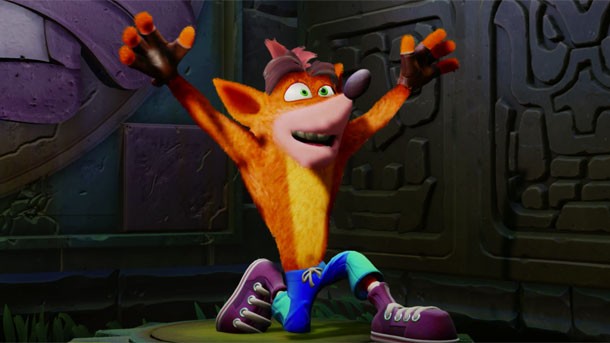
How’s the Crash Bandicoot N. Sane Trilogy doing for you guys?
It’s off to an incredible start, even bigger and better than we thought. This is a game that, first of all, I have a huge personal attachment to. I grew up playing it. Some of my fondest gaming memories are around Crash and my dad and I in my basement. There’s been a lot of energy on social media and like, “When are they gonna do this?” And it’s one of those where you never know. Is that like a vocal minority? Is that a tiny audience who’s just Crash crazy or is there a real audience here? And it’s very hard to find that out. I’m so glad we finally figured out a way to get it on the slate, to get a great team.
To call it a remaster is really an understatement – it’s really a recreation, because the technology has come so far. It feels and looks and sounds like Crash, but we really had to recreate most of those elements from the ground up. So, I’m just thrilled that there are so many people who feel like we do and who appreciate the effort. It’s another one where – overwhelming amount of value: all three games, beautifully remastered, great price – it’s exciting.
We'll have more exclusive reveals, videos, and information on Call of Duty: WWII throughout the month, so be sure to check out the coverage hub.
